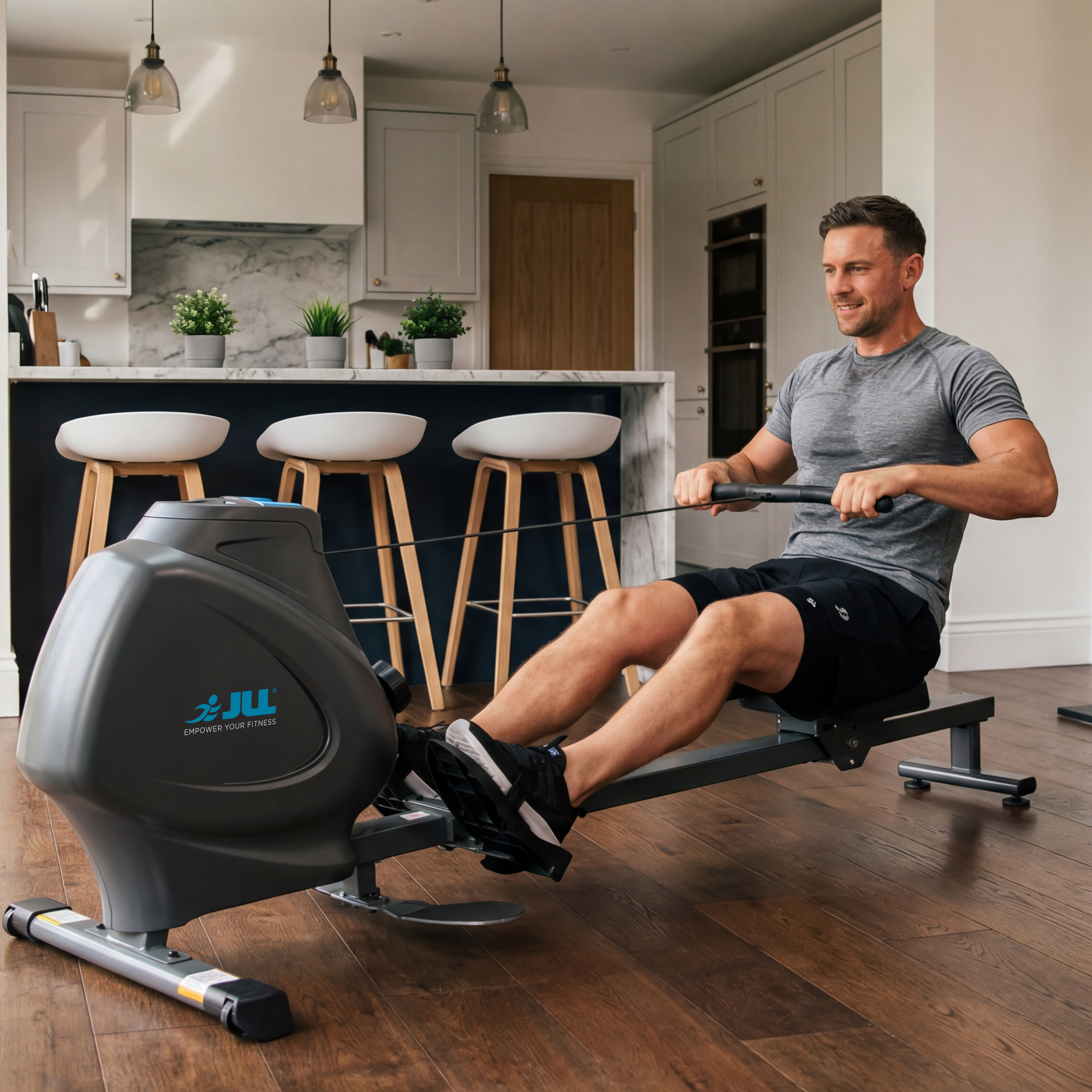Sleep is a crucial, yet often overlooked, component of fitness and recovery. While many people focus on their diet and exercise routine, sleep plays an equally important role in helping you achieve your fitness goals, build muscle, and recover effectively. Whether you’re an athlete or someone starting their fitness journey, understanding how sleep impacts your body can make a significant difference in your progress and overall well-being. Let’s dive into the ways sleep supports fitness and why prioritising it is essential.
-
Muscle Recovery and Growth
After a workout, your muscles need time to repair and grow. This process, called muscle protein synthesis, primarily occurs during sleep. Here’s how it works:
- Release of Growth Hormone: During deep sleep, the body releases growth hormone, which is critical for muscle repair, tissue growth, and fat metabolism. This hormone not only helps repair damaged muscle fibres but also supports the development of lean muscle mass.
- Protein Synthesis: Sleep is when the body goes into recovery mode. It uses the protein and nutrients consumed during the day to rebuild and strengthen muscles that were broken down during exercise.
- Reduction of Cortisol Levels: Cortisol, a stress hormone, can hinder muscle growth and increase fat storage. Proper sleep helps keep cortisol levels in check, allowing for optimal muscle repair.
Without adequate sleep, the body’s ability to recover and build muscle is compromised, which can lead to stagnation in progress and even increase the risk of injury.
-
Improved Performance and Endurance
A good night’s sleep enhances physical performance by improving reaction times, strength, and endurance. Studies have shown that athletes who get sufficient sleep perform better across a range of physical activities, from strength training to endurance sports. Here’s why:
- Enhanced Muscle Function: During sleep, your body restores energy stores, particularly glycogen, which fuels muscles during exercise. Sleep also helps optimise the function of the nervous system, improving coordination, reaction times, and muscle contraction.
- Better Mental Focus: Fitness isn’t just physical—mental focus is a critical component of performing well. Adequate sleep enhances cognitive functions like attention, decision-making, and concentration, all of which are essential for executing complex movements, maintaining good form, and pushing through challenging workouts.
- Increased Endurance: Sleep helps regulate cardiovascular function and stamina. Athletes who consistently get enough sleep have better aerobic performance, increased time to exhaustion, and lower perceived effort during workouts.
-
Hormonal Balance and Weight Management
Sleep plays a crucial role in maintaining a healthy hormonal balance, which directly affects body composition and weight management:
- Leptin and Ghrelin Regulation: These two hormones control hunger and appetite. Leptin signals fullness, while ghrelin stimulates hunger. Sleep deprivation disrupts the balance between these hormones, increasing ghrelin levels (hunger) and decreasing leptin levels (fullness). This imbalance can lead to increased appetite, cravings, and overeating, making it harder to manage weight and body composition.
- Insulin Sensitivity: Sleep also affects insulin sensitivity. Lack of sleep reduces your body’s ability to regulate blood sugar levels effectively, increasing the risk of insulin resistance, which is linked to weight gain and difficulty losing fat.
- Testosterone and Cortisol: Proper sleep supports the production of testosterone, a hormone important for muscle growth, fat loss, and energy levels. It also helps regulate cortisol, preventing chronic stress that can interfere with weight loss efforts and muscle recovery.
-
Injury Prevention
Rest is essential for avoiding injury. When you’re sleep-deprived, your body’s reaction time slows, coordination decreases, and you’re more likely to experience impaired judgment—all of which increase the risk of injury during workouts.
- Better Muscle Coordination: Adequate sleep improves neuromuscular function, which is critical for maintaining balance and coordination, especially during complex movements like squats or Olympic lifts.
- Faster Recovery from Microtraumas: Every workout creates microtraumas in your muscles and tissues. Sleep provides the necessary recovery time to heal these minor injuries, reducing the likelihood of overuse injuries and muscle strain.
-
Enhanced Immune Function
Sleep is essential for maintaining a strong immune system, which is important for anyone who trains regularly. Intense exercise can temporarily suppress the immune system, making athletes more susceptible to illness. Adequate sleep, however, supports immune health by:
- Producing Cytokines: Cytokines are proteins that help fight infection, inflammation, and stress. Sleep is when your body produces and releases cytokines, ensuring your immune system remains strong.
- Reducing Inflammation: Consistent sleep reduces chronic inflammation levels, which is vital for those engaged in regular physical activity. Lower inflammation means faster recovery and fewer chances of overtraining syndrome.
-
How Much Sleep Do You Need?
The amount of sleep needed varies from person to person, but the general recommendation for adults is between 7-9 hours per night. For those heavily involved in physical training or high-intensity sports, the need may be on the higher end or beyond:
- Athletes and Regular Exercisers: For optimal recovery and performance, 8-10 hours may be ideal. Quality of sleep is just as important as quantity—deep, uninterrupted sleep cycles ensure the body goes through essential recovery processes.
- Consistency Is Key: Maintaining a regular sleep schedule helps regulate your circadian rhythm, improving the quality of sleep. Going to bed and waking up at the same time each day, even on weekends, can optimise sleep quality.
-
Tips for Improving Sleep Quality
To maximise the benefits of sleep for fitness and recovery, focus on creating habits that promote deep, restful sleep:
- Establish a Pre-Sleep Routine: Engage in relaxing activities before bed, such as reading, stretching, or meditation, to signal to your body that it’s time to wind down.
- Limit Screen Time: Blue light from phones and computers can interfere with melatonin production, a hormone that regulates sleep. Avoid screens at least 1 hour before bedtime.
- Optimise Your Sleep Environment: Keep your bedroom cool, dark, and quiet. Investing in a comfortable mattress and blackout curtains can make a big difference.
- Avoid Caffeine and Alcohol: Limit caffeine intake in the afternoon and evening, as it can disrupt sleep. While alcohol may help you fall asleep initially, it often interferes with sleep cycles, leading to restless nights.
- Manage Stress Levels: High stress can make it difficult to fall asleep and stay asleep. Incorporate relaxation techniques such as deep breathing, yoga, or mindfulness exercises into your daily routine.
Sleep is a powerful tool in the arsenal of anyone serious about fitness, recovery, and overall well-being. It’s during sleep that your muscles repair, your performance enhances, and your body and mind rejuvenate. By prioritising quality sleep and developing healthy sleep habits, you not only maximise your physical gains but also protect your health and enhance your quality of life. Remember, fitness doesn’t just happen in the gym—true progress also happens when you rest.









Leave a comment
All comments are moderated before being published.
This site is protected by hCaptcha and the hCaptcha Privacy Policy and Terms of Service apply.